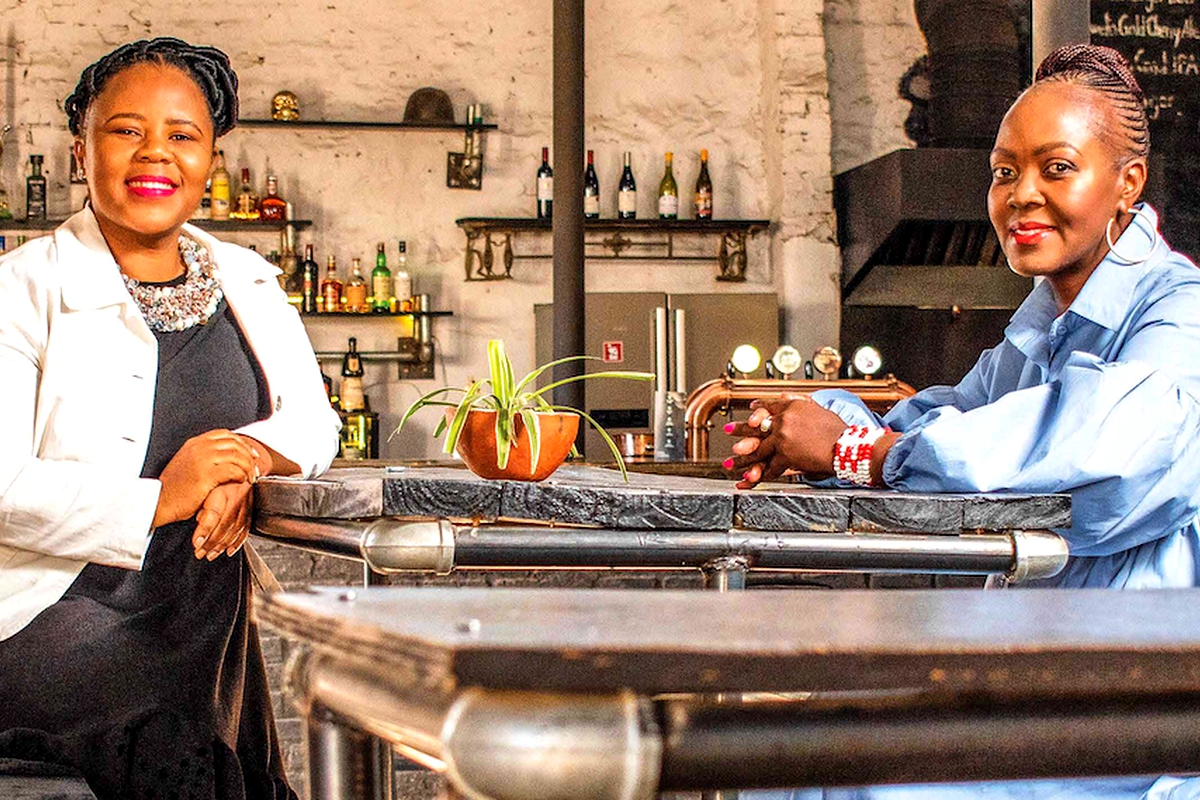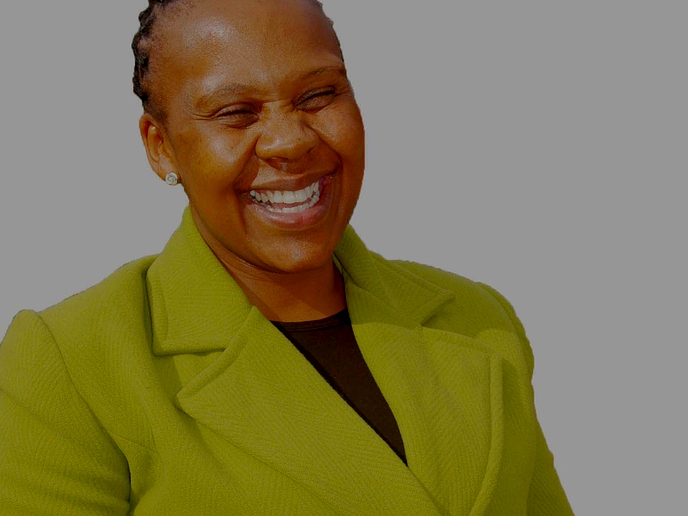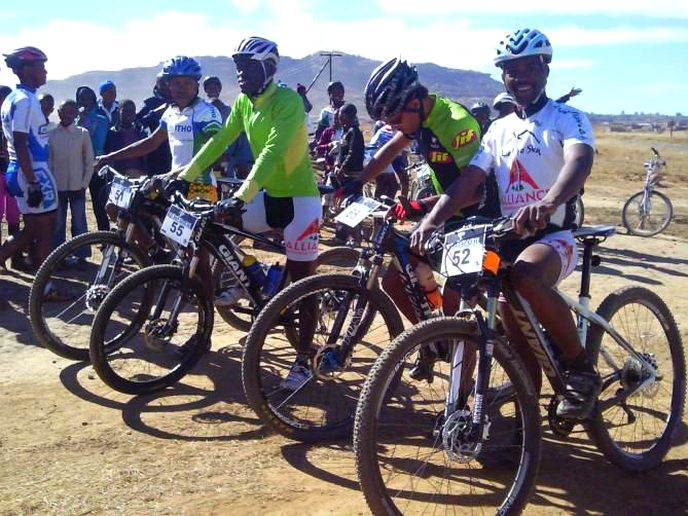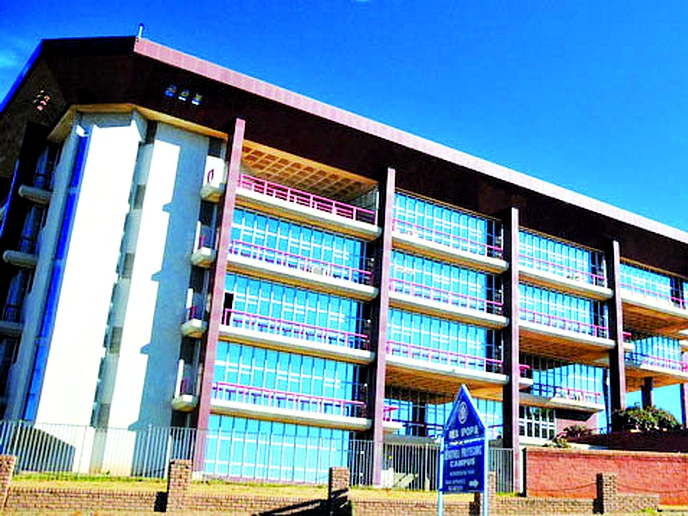Mamello Phomane holds a junior degree in the Social Sciences from the National University of Lesotho and a Master of Business Leadership Degree from the Graduate School of Business Leadership at UNISA. of Metropolitan Lesotho. She has had a long career at Metropolitan having been there for the past 17 years serving in various roles.
news
Aug. 13, 2020
STAFF REPORTER
6 min read
Thought Leader with Advocate Ndumo (part 3)

Female business leadership, agility in a VUCA context and client centricity with Mamello Phomane
Prior to being appointed as the Managing Director, she was the Chief Operations Officer. She was previously the Head of the Corporate Business Division at Metropolitan Lesotho from July 2009 where she was instrumental in growing the division. Before heading up the Corporate Business Division she had established and managed the HR function for the Metropolitan Lesotho from 2004.
Prior to working for Metropolitan Mamello worked for the Office of the Auditor General in the capacity of Human Resources Manager. Mamello is passionate about service and she is a Rotarian and a Past President with the Maloti Rotary Club. She was a charter member of the Roma Rotaract Club at the National University of Lesotho.
1. You are Lesotho’s first female MD in the life insurance sector; from a policy and human resources development perspective, how can we ensure that our country continues to elevate female leaders in all sectors of our economy?
There are quite a number of actions we can take to elevate women leaders. I think the first thing we need to do is acknowledge that the glass ceiling does exist and that we need to do something about it.
A Women in Leadership 2019 report I was reading recently, done by McKinsey and Company in association with LeanIn.org, acknowledges that some progress has been made in the last five years to elevate women into senior level positions in the workplace.
However, we still have a long way to go because more often than not, our pipeline of women managers that can be elevated to senior level positions is low. We have what the report calls a ‘broken rung’ at the level just below the senior level. Women in lower level positions find it difficult to get promoted to Manager level positions, which is the step women need to become senior level managers.
We need to start with having the right conversations in the workplace championed and led by senior management. These conversations need to be about the reality of unconscious gender bias in the workplace. Women being relegated to certain positions such as secretary or personal assistant, women being passed up for promotion because it is assumed, she will want to focus on the home front.
A woman in a meeting being asked to take the minutes because they have such lovely handwriting. Organisations should have training geared at making employees aware of unconscious gender bias and how it manifests in everyday work situations.
Women in leadership face big challenges in the workplace, a big part of it is that women must battle the double bind. You are damned if you do, you are doomed if you don’t. If the pitch of your voice is too high, you come across as aggressive.
If you are too soft spoken, grow some B&#@! When women take charge and lead, they are said to be too aggressive and are disliked as leaders. When women are soft and caring, they are liked but viewed as less of a leader. We are constantly judged by double standards that men are not subjected to and it is often difficult for women to know what to do.
An important conversation to be had is one about helping women themselves to advance. Helping them with leadership skills, mentoring them to be confident, to set career goals that they wouldn’t otherwise set for themselves because they are afraid or lack the confidence. Corporates should set up Mentorship Programmes for Women employees championed by both male and female senior management.
Enjoy our daily newsletter from today
Access exclusive newsletters, along with previews of new media releases.
2. We are now entering an era where feminine leadership energies are beginning to find resonance in workplaces, in your view, what do women bring to the table that they can consistently tap into and own?
I think you will find that studies conducted seeking to establish whether women bring something extra to the table have not necessarily been able to make any firm conclusions. Having said that, research has however shown that female leadership has been associated with a more transformational and democratic style of leadership while male leadership is more transactional in nature. Importantly, when discussing female leadership, we have to look at how far we have come as a society and look at female leadership within that context.
Organisations are changing and appointing a woman in a senior role talks to the organisation’s willingness to embrace progressiveness and a departure from the past. Leadership roles have also changed, deviating from old stereotypes. When people think of a leader, they do not necessarily think of a man anymore and that is a massive shift that is worth celebrating.
3. In one of your interviews, you noted that, as a business in a field with competitors, your edge is based on client-centricity, how do we permeate our entire economic ecosystem with excellence in service to individual and institutional clients? I am here thinking of, e.g., infusing government service delivery with the notion of clientcentredness?
What is important is that we not pay client centricity lip service and think that will be enough. When we talk client centricity, we need to be talking about every aspect of the organisation and how it operates. So, we are talking organisational culture that is underpinned by operational processes that put the client first and with excellence as the outcome.
It is in the everyday way of how we work, how we see the client and the ultimate reality of how the client experiences us across all the customer touchpoints. We have to be willing to receive feedback from our clients and use it to continuously improve our service. Whenever I am in a place where I receive a service, I am always conscious about my experience as soon as I walk in. A client centric culture requires commitment and consistency to achieve depending on where you are coming from, but I know for sure that it is doable. It is a question of leadership! What is your message to all the actors in our economy in this VUCA environment and planning for Future Lesotho?
A VUCA environment is always going to be difficult to operate in, however we have to do it to survive. Agility is the first thing that came to mind here. Agility is the ability of an organization to renew itself, adapt, change quickly, and succeed in a rapidly changing, ambiguous, turbulent environment.
An agile organisation is able to adapt to the changes in the environment and actually benefit from it. We can’t plan the way we used to anymore, we now have to do scenario planning and plan to be ready to adjust at a moment’s notice.
Last year this time, we had no idea that we would be seeing the kind of unprecedented disruption we are seeing now brought about by COVID-19. It has forever altered the world of business in ways that we could not have imagined. The financial services sector has to adapt just like other sectors.
The way I see it, really agile businesses are able to revamp their business operations for speed, adaptiveness and stability. They need to be able to modify leadership, culture, risk and governance, as well as organizational structure, employees, distribution channels and operations while using technology and data to their advantage.






